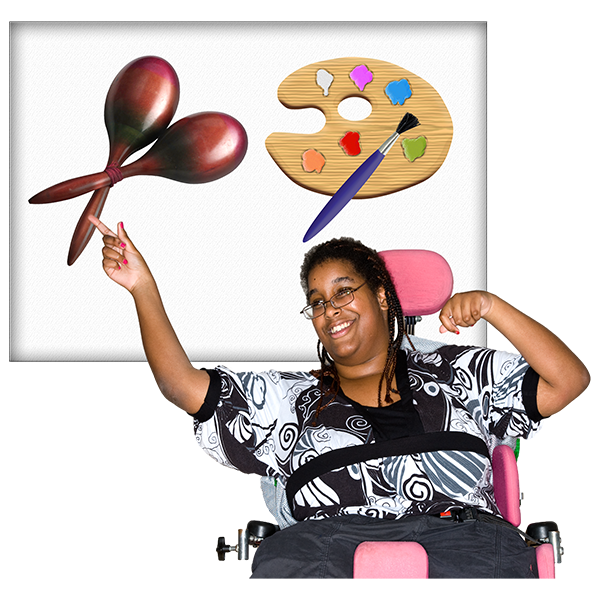Today, the Office for National Statistics has released statistics which reveal that disabled people are one group who have been hit hardest during the coronavirus pandemic.
Latest ONS figures published in “Coronavirus and the social impacts on disabled people in Great Britain: September 2020” show that:
- Twice as many disabled people than non-disabled people reported that the coronavirus pandemic is making their mental health worse (41% for disabled people and 20% for non-disabled people)
- 1 in 10 (11%) of disabled people think life will never return to normal compared with only 1 in 20 (5%) of non-disabled people
- Nearly a quarter (24%) of disabled people reported that they feel like a burden on others
- Disabled people were less likely to feel that they had enough information about
the Government
 The Government are the people who run the country. The Government decide how much tax people should pay and how things like the National Health Service (NHS) should work.
’s plans to manage the coronavirus pandemic (40%) than non-disabled people (48%)
The Government are the people who run the country. The Government decide how much tax people should pay and how things like the National Health Service (NHS) should work.
’s plans to manage the coronavirus pandemic (40%) than non-disabled people (48%) - Around 5 in 10 (50%) disabled people who were receiving medical care before the coronavirus pandemic began, indicated that they were either currently receiving treatment for only some of their conditions (29%), or that their treatment had been cancelled or not started (22%), compared with less than 3 in 10 (27%) of non-disabled people who had a physical or mental health condition or illness and were receiving care before the pandemic.
A Mencap survey of 1,069 family carers of people with a
learning disability
 A learning disability is to do with the way someone's brain works. It makes it harder for someone to learn, understand or do things.
about their experiences during the coronavirus pandemic revealed that:
A learning disability is to do with the way someone's brain works. It makes it harder for someone to learn, understand or do things.
about their experiences during the coronavirus pandemic revealed that:
- 7 in 10 people with a learning disability had their social care cut during lockdown at the same time as over two thirds of people saw their support needs increase.
- This lack of social care support during this crisis has negatively impacted people with a learning disability in a number of ways, including their mental health (69%),
relationships
 Relationships are about the people in your life. You might have different types of relationships like friendships, family relationships, or a boyfriend or girlfriend.
(73%), physical health (54%) and
independence
Relationships are about the people in your life. You might have different types of relationships like friendships, family relationships, or a boyfriend or girlfriend.
(73%), physical health (54%) and
independence
 Independence means doing things on your own. Making your own choices.
(67%).
Independence means doing things on your own. Making your own choices.
(67%).
Jackie O’Sullivan, Executive Director of Communications, Advocacy
Advocacy is when you get support to have your say. and Activism
Activism is taking action to make change. Going to a campaign
A campaign is when people work together to try to change something. event with others, writing letters and speaking up are all ways to take action. at the learning disability charity Mencap, said:
“It’s shocking that disabled people are twice as likely as non-disabled people to report that the coronavirus pandemic is making their mental health worse, and that one in ten worry their life will never return to normal.
“Disabled people have been left to struggle without support when they have needed it most. During the pandemic, there have been cuts
Cuts are when there is less money to pay for things like clubs and support. to vital social care services, a lack of accessible
Accessible means something is easy for people to use or join in with. For example: Accessible writing means the writing is easy to read and understand. Government information and difficulties accessing healthcare. In some cases, disabled people have had inappropriate ‘Do Not Attempt CPR’ notices placed on their medical records.
“The coronavirus pandemic has disproportionately hit disabled people and it’s no wonder they feel abandoned during this crisis. The Government must step up and give the support disabled people need if we are to avoid turning back the clock on their rights
Rights are the things everyone should be allowed to do like have a say, or go to school. and life chances. This means providing an emergency injection of funding to social care so that vital support services can reopen safely and easy-read information so that everyone, including people with a learning disability, can understand the rules.”
Read the full ONS report online here: https://www.ons.gov.uk/peoplepopulationandcommunity/healthandsocialcare/disability/articles/coronavirusandthesocialimpactsondisabledpeopleingreatbritain/september2020
- Ends –
For further information or to arrange interviews, contact Mencap’s media team on:
- media@mencap.org.uk
- 020 7696 5414 (including out of hours).
Notes to editors
1. Mencap is calling for:
- a clear plan for supporting the whole care market, including services for work-aged disabled adults which currently make up over half of the total social care
budget
 A budget is a plan where you look at how much money you have and how you will spend it.
A budget is a plan where you look at how much money you have and how you will spend it.
- additional funding to meet current demand for support and stabilise the sector
- a road map towards the Government's plans for social care reform, including a long-term funding solution, fairer access to services and support and workforce reform
- Social care reform and long-term funding must cover a range of services and support that people with a learning disability need beyond personal care to enable them to lead independent and fulfilling lives in their
community
 A community is the people and places in an area.
.
A community is the people and places in an area.
.
2. The social care sector needed an £8 billion investment in social care in England is needed to restore adequate levels of quality and access to what it was a decade ago, according to the Lords Economic Affairs Committee report. While the Association of Directors of Adults Social Services’ latest Budget Survey revealed that there is a growing hole in local authorities budgets for services supporting people with a learning disability – up to £200m in 2020/21 from £180m in 2019/20.
The coronavirus pandemic has led to local councils in England facing at least a £6.6bn increase in social care costs up to the end of September, according to the Local Government Association and the Association of Directors of Adults Social Services.
About Mencap
There are 1.5 million people with a learning disability in the UK. Mencap works to support people with a learning disability, their families and carers by fighting to change laws, improve services and access to
education
 Education is when you learn things. When you fill in a form to get a job, education means you write where you went to school, college or university.
,
employment
Education is when you learn things. When you fill in a form to get a job, education means you write where you went to school, college or university.
,
employment
 Employment means having a job.
and
leisure
Employment means having a job.
and
leisure
 Leisure is when you have time to do things you enjoy like playing sports or going to the pub.
facilities. Mencap supports thousands of people with a learning disability to live their lives the way they want. www.mencap.org.uk.
Leisure is when you have time to do things you enjoy like playing sports or going to the pub.
facilities. Mencap supports thousands of people with a learning disability to live their lives the way they want. www.mencap.org.uk.
For advice and information about learning disability and Mencap services in your area, contact Mencap’s Freephone Learning Disability Helpline on 0808 808 1111 (10am-3pm, Monday-Friday) or email helpline@mencap.org.uk.
What is a learning disability?
- A learning disability is a reduced intellectual ability which can cause problems with everyday tasks – for example shopping and cooking, or travelling to new places – which affects someone for their whole life;
- Learning disability is NOT a mental illness or a learning difficulty, such as
dyslexia
 Dyslexia is a learning difficulty. People who have dyslexia can find it hard to read, write and spell.
. Very often the term ‘learning difficulty’ is wrongly used interchangeably with ‘learning disability’;
Dyslexia is a learning difficulty. People who have dyslexia can find it hard to read, write and spell.
. Very often the term ‘learning difficulty’ is wrongly used interchangeably with ‘learning disability’; - People with a learning disability can take longer to learn new things and may need support to develop new skills, understand difficult information and engage with other people. The level of support someone needs is different with every individual. For example, someone with a severe learning disability might need much more support with daily tasks than someone with a mild learning disability.